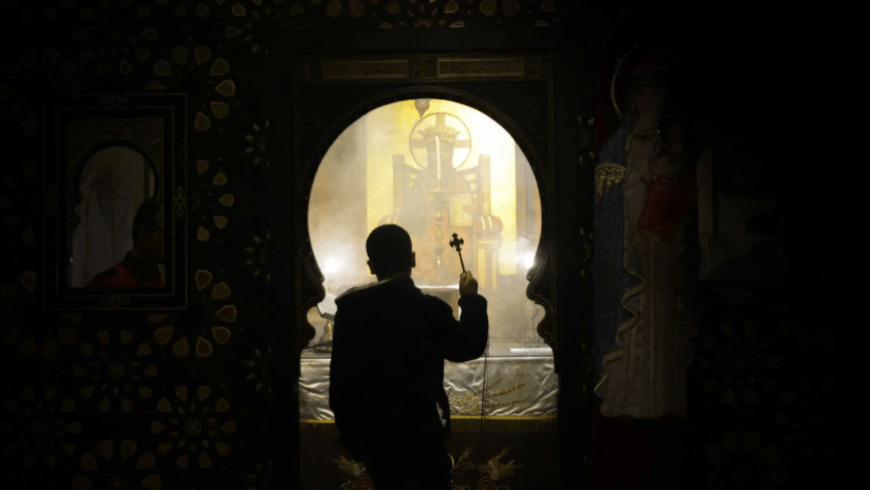In the wake of last week’s horrific bombing of Mar Elias Church in Damascus, which killed 25 worshippers and wounded dozens more, calls to “reassure minorities” in Syria are once again echoing across diplomatic and media circles. As heartfelt as these expressions may be, they are deeply misguided—and dangerously outdated.
Syria’s Christian communities, like all its religious and ethnic groups, deserve security. But they do not need to be “reassured” as though they are guests in their own country. They are Syrians—rooted, integral, and equal. What they need, like every Syrian, is a state that delivers full, equal citizenship.
The bombing, which bears the fingerprints of ISIS, was not just a barbaric act of terrorism. It was also a cynical attempt to provoke sectarian division and reanimate the old colonial trope: minorities as perpetual victims, requiring external protection. It’s a narrative with a long, destructive history.
The language of “minority protection” was developed by Western powers in the 19th century as a pretext to fracture the Ottoman Empire. Under the guise of safeguarding Christians or other groups, France, Britain, Russia, and later the United States exploited communal identities to redraw borders, install client regimes, and assert geopolitical control. More recently, Iran and even the Assad regime have played from the same playbook—weaponizing sectarian fears to sustain power.
This framework assumes that pluralistic societies are inherently unstable and must be managed through external tutelage or internal strongmen. But it is not minorities who are the problem—it is the absence of equal rights.
Syria’s Christians do not need pity. They need laws that protect all citizens equally. They need a constitution that enshrines religious freedom, freedom of expression, and equal access to public life. They need protection not as minorities, but as Syrians.
As someone who grew up in a Christian neighbourhood, I have seen this coexistence firsthand. Our neighbour “Teta” Umm Samir, a kind Christian grandmother, helped raise me as lovingly as she did her own grandson. We did not think of ourselves as separate communities. We were simply neighbours.
And let’s not forget the many Syrian Christians who stood shoulder to shoulder with Muslims in the revolution: the late Michel Kilo, George Sabra, Basel Shehadeh—voices of conscience who demanded not sectarian privilege, but national dignity.
The path forward is not to revive the old logic of “protecting minorities.” It is to end sectarian politics altogether. To build a civic state in which all Syrians—Christian, Muslim, Druze, Alawite, Kurdish—are protected not by identity but by law.
So no, Syria doesn’t need more soothing reassurances. It needs a new social contract—one that buries the politics of fragmentation and replaces it with citizenship, dignity, and justice for all.
This article was translated and edited by The Syrian Observer. The Syrian Observer has not verified the content of this story. Responsibility for the information and views set out in this article lies entirely with the author.


